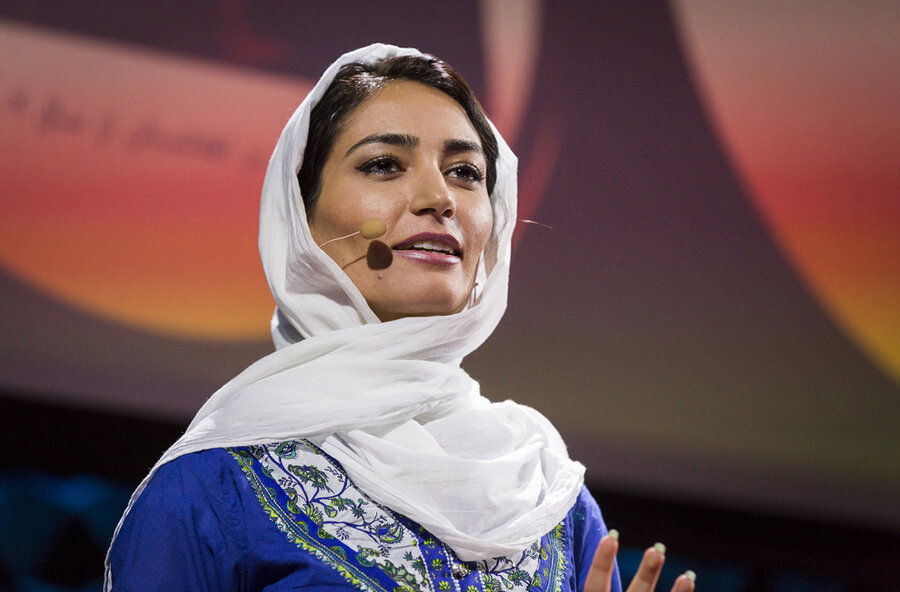
Building Afghanistan2.0 with Afghan Girls who Code
As the poet Rumi said, “Where there is ruin, there is hope for a treasure.”
Were you born as a refugee? Have you ever been forced to leave your country because of war? Did your parents leave everything behind and start with nothing but a suitcase in a different country? Have you ever been deprived of access to basic education because of your nationality? Have you been judged or faced bias because of your accent, gender, or because you were too vocal in your hometown? Have you ever felt scared and nervous while traveling abroad, standing in anticipation with your passport in hand?
That’s me! I hope this introduction gives you an idea of what I have been through as I approach the third decade of my life.
My family left the small town where I was born on the border of Afghanistan and Iran in the early 1980s, during the Soviet invasion of Afghanistan. There were 10 of us: my parents, me, and my seven siblings. We lived in a place where we were treated, at best, as unwanted guests. Even accessing a basic right like education was an obstacle. My mother, however, inspired me. She learned how to design and create dresses, which she sold to buy us school supplies. She taught me how to be an entrepreneur and make the best out of the least.
Moving Back to Afghanistan
After the fall of the Taliban in 2001 in Afghanistan, many Afghan families abroad, like mine, found hope in their motherland again. That’s why we moved to Herat in 2002.
I earned my bachelor’s degree in computer science, and later on—through the German Academic Exchange Service scholarship program—I went to the Technical University of Berlin in Germany for two years. I got my master’s in information technology. When I returned home to Afghanistan, I started my career as a computer science professor at Herat University in the computer science department.
Why Code to Inspire
Throughout my life and education, there were many ups and downs. It made me determined to improve the status quo of women’s education in Afghanistan, and specifically, in technology. Most of the time, when a female student graduated with a degree in computer science, she couldn’t find relevant, fulfilling work. Unfortunately, there are many reasons why. Expectations from a woman’s family and society will limit her employment options. The majority of families prefer that their daughters become teachers, because it is a well-respected, well-paying job in the community, and teachers only work with other women.
A woman who graduates with a degree in computer science cannot leave her hometown for some spectacular job offer. Most families won’t let their daughters stray far from home. Safety and security is one reason, let alone the fact that few families can afford airfare for their daughters. Also, young women in Afghanistan can’t travel on foot even if they have a male companion. It’s simply not part of our culture for a girl to live in another city by herself, unless she has a close and trusted family member living with her.
As a female entrepreneur in technology, I have also experienced how difficult it is to deal with male customers. They don’t always respect my vision and will tell me I can’t design a website or develop software because I’m a woman.
The Problem Today
The lack of a safe and secure learning environment, travel and social restrictions, a patriarchal society, and verbal and sexual harassment in the workplace: These are the reasons I established Code to Inspire as a social good enterprise in January 2015. Later that year, we opened the first coding school for girls in Afghanistan. We aim to educate Afghan women with in-demand programming skills, empower them to add unique value to their communities, and inspire them to strive for financial and social independence.
Knowledge is power, and technology is the tool for this empowerment. Through the power of the Internet, I created Code to Inspire from the ground up in Herat while I was in the United States: fundraising, shipping equipment, recruiting mentors, registering applicants, curriculum development, and the list goes on. This is the power and connectivity I am talking about. The Internet enabled me, a refugee deprived of access to education, to realize my dream of providing free access to STEM education to the girls and women in my hometown.
Women don’t need sympathy; women need the genuine understanding of what they have been through and how the community can stand with them and treat them equally to men. This is what I am doing for our students in Herat. I want them to be bold and courageous. I want them to be visionaries and agents of change.
All of our students at CTI are proving that CHANGE IS POSSIBLE, no matter who or where you are!











0 comments to "Building Afghanistan2.0 with Afghan Girls who Code"